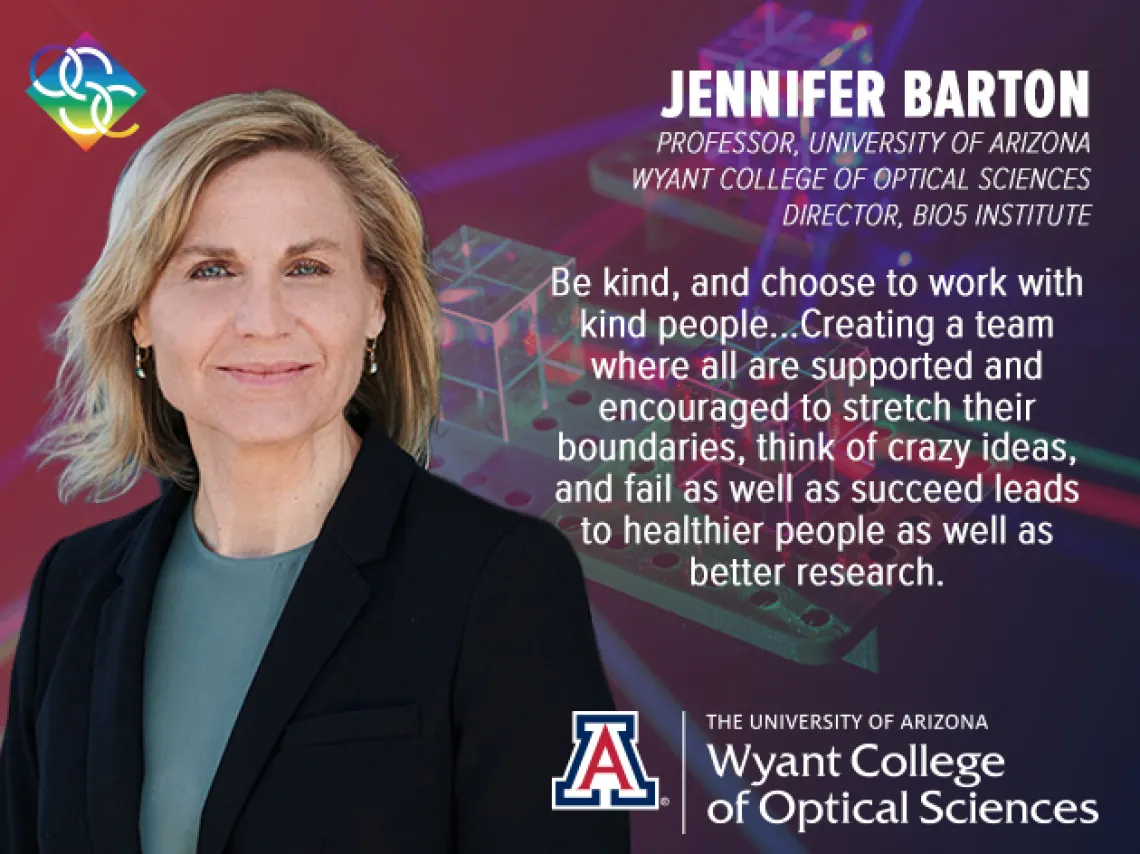Women in Research: Jennifer Barton

Describe your Research Contributions or Interests.
I work at the interface of biology, engineering, medicine, and optics to develop multimodal miniature endoscopes for early cancer detection. These endoscopes go beyond the currently-available white light surface imaging to obtain additional information about tissue health, through advanced optical imaging techniques such as optical coherence tomography, fluorescence spectroscopy, and multiphoton microscopy. Using the latest in technology developments (robust portable lasers, miniature sensors, capable fiber optics) as well as the latest in knowledge of the biological origin of cancer, my lab is focused on creating clinically-translatable devices. Working with physicians, biologists, and industry partners, we aim to create systems that can find abnormal tissue early, when cancer is most treatable. Our miniature endoscopes, some less than a millimeter in diameter, can examine organs deep in the body in a minimally-invasive manner. With this technology, our goal is to relieve the burden of cancer, particularly ovarian cancer, which is the most deadly gynecological malignancy.
Who was your Most Significant Role Model in Science or in your Career?
My parents had a huge impact on my career. I was fortunate that they both believed in me and expected me to become an engineer just like my brothers. My father taught me how to wire a house and my mother tutored me in calculus when I was struggling. My father was the Chief Engineer on the Apollo 11 Command Module and my mother was a NASA Computer, and after a pause to have 5 children, worked on Space Shuttle projects. They both had very high expectations for me which could be challenging, but gave abundant support as well.
What Piece of Advice Would you Like to Pass On?
Be kind, and choose to work with kind people. Over the years I've realized that human beings have enormous potential that can be brought out by kindness. Creating a team where all are supported and encouraged to stretch their boundaries, think of crazy ideas, and fail as well as succeed leads to healthier people as well as better research.
